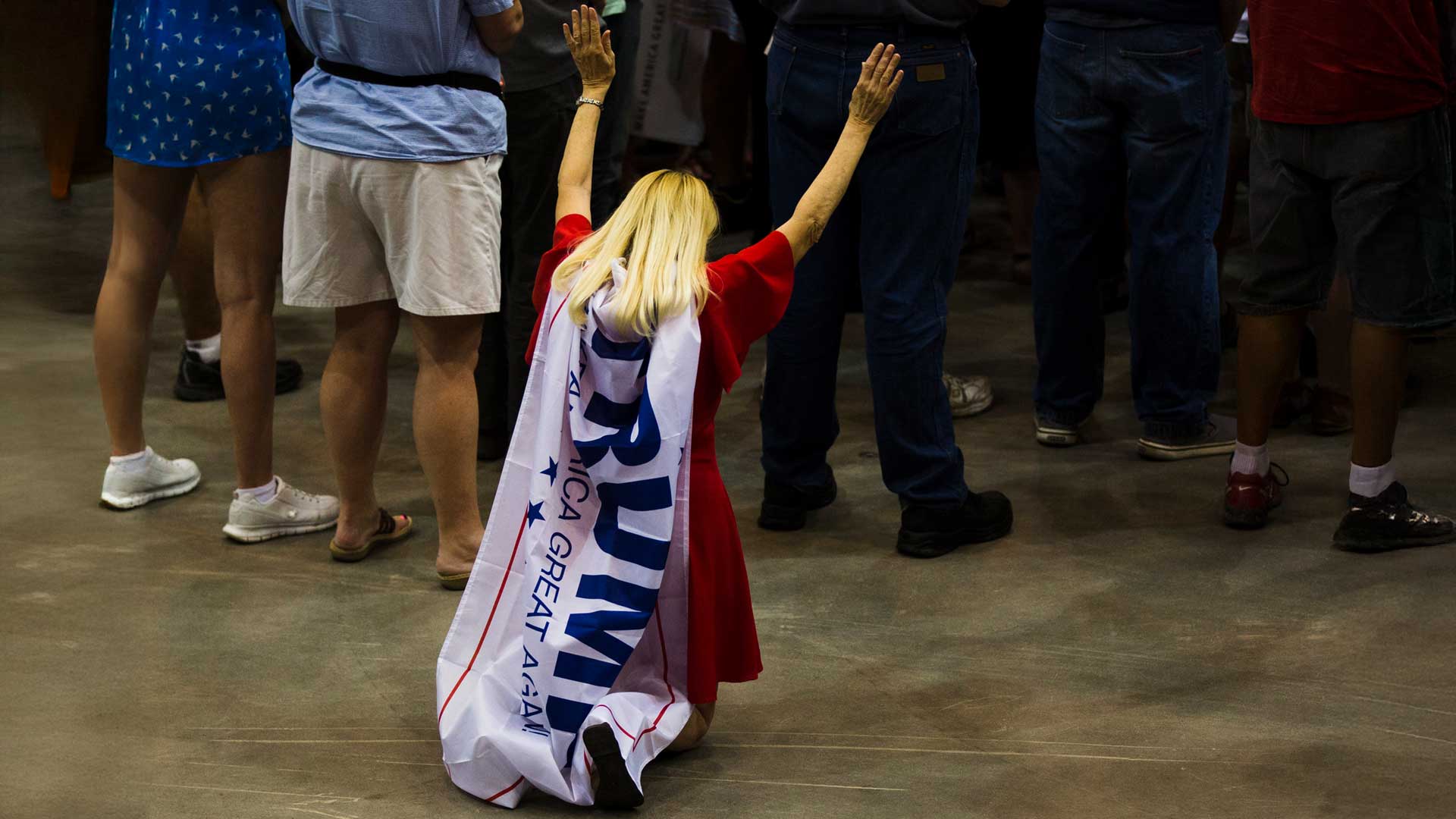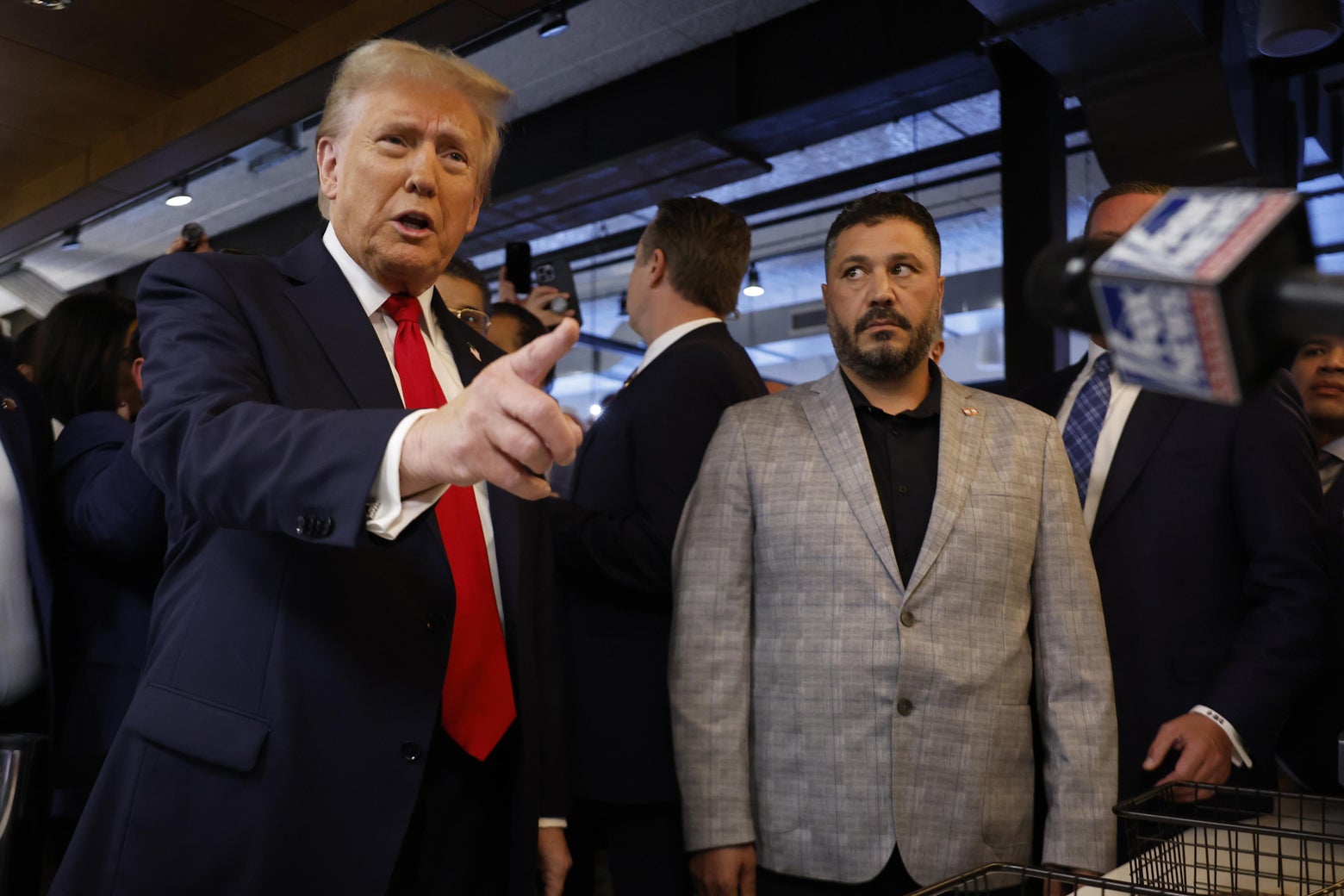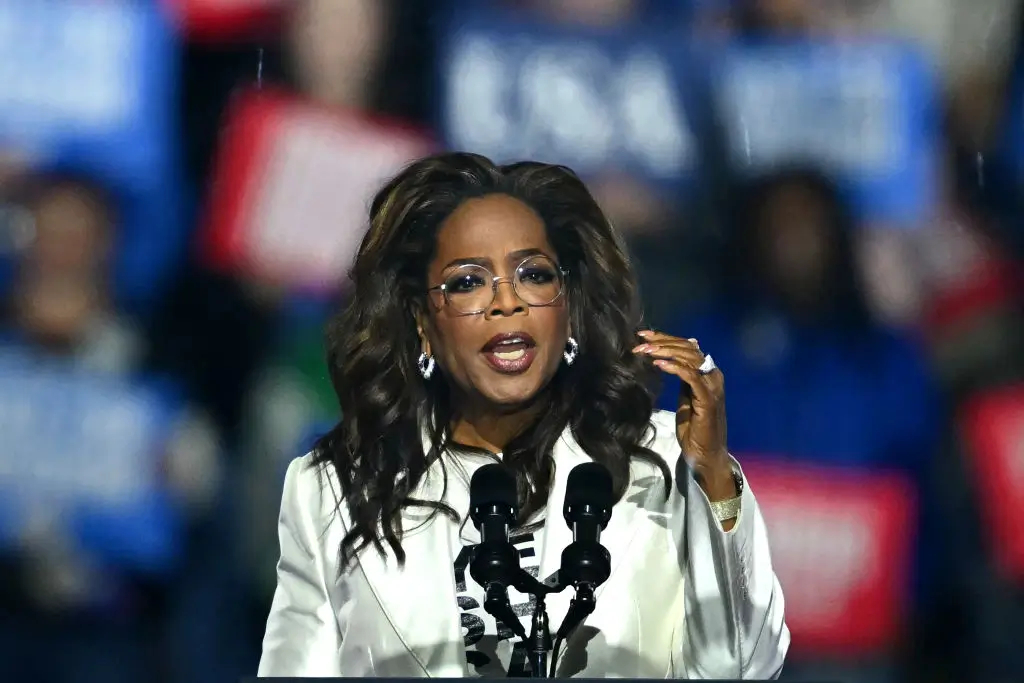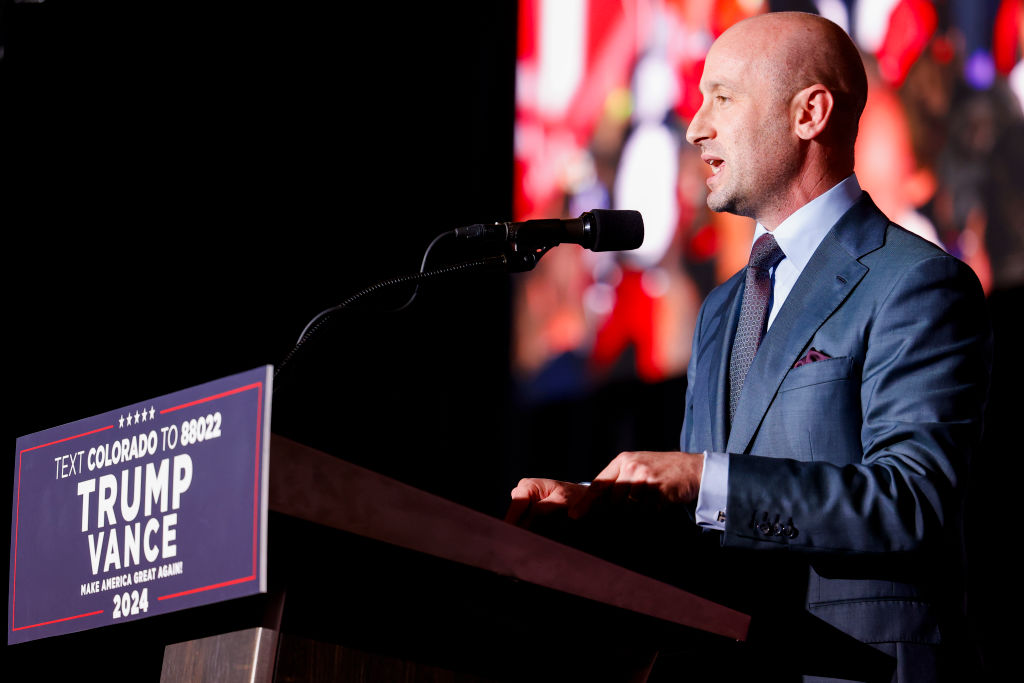On election night, at a political watch party, Abbas Alawieh, a Lebanese American from Dearborn, Michigan, felt zero surprise as he saw Donald Trump outperform his 2020 numbers in county after county, pulling off a nightlong march to victory.
Alawieh, a lifelong Democrat and onetime chief of staff for Rep. Cori Bush, has spent years mobilizing Democratic voters in Dearborn. Earlier this year, frustrated by Biden’s steadfast support for Israel, he and two fellow Palestinian Americans co-founded Listen to Michigan, a coalition urging local voters to send Biden a message by voting “uncommitted” in the Democratic primary. More than 100,000 voters did, hoping to push Biden to reconsider his stance on Gaza.
When that didn’t work, even after Kamala Harris took over the ticket, the movement expanded nationwide, sending 30 uncommitted delegates to the Democratic National Convention, where Alawieh, a Michigan delegate, personally urged Democratic leadership to allow a Palestinian American speaker at the convention. “We were asking Democratic leadership to empower us,” Alawieh said. “They flat-out said, ‘No thanks. We’re good without you.’ I’d hoped that, whatever calculus they were making, there were some 101,000 Liz Cheney voters out there somewhere they were catering to. It turns out those voters don’t exist.”
Dearborn, the heavily Arab American and Muslim American city, is still coming to terms with Trump’s election victory. The former president won there with 42.5 percent of the vote, compared with Harris’ 36 percent. Jill Stein, who chose a Muslim American running mate, captured 18 percent. In neighboring Dearborn Heights, with another large Arab American community, Trump claimed 44 percent to Harris’ 38 percent, marking a shift once unthinkable toward a man who had spent his first run for president demonizing the nation’s Muslims and enacting a Muslim ban during his first term in office. (Until now, no Republican for president had won in Dearborn since George W. Bush in 2000.)
For a city long seen as the heart of Arab American political influence, Trump’s success here highlighted a growing gap between Democratic leadership and the communities that once formed its base.
Alawieh couldn’t bring himself to vote for Trump; he voted for Harris. But he didn’t necessarily want her to win either. “I wanted her to beat Trump, but Harris winning would mean my family stays in the same nightmare we’ve come to know. Trump winning makes that nightmare more uncertain, and the ways it will harm my family less clear. But what is clear is that the U.S. government, whether Democrat or Republican, will keep sending weapons to Benjamin Netanyahu illegally. That’s what I have a problem with.”
For Alawieh, like many Dearborn residents, the conflict is personal. As a child, he and his family sheltered in their home while Israel dropped U.S.-made bombs overhead. Earlier this year, when Israel expanded its war to take on Hezbollah, Southern Lebanon was decimated again, forcing Alawieh’s relatives to flee for safety. He is in close contact with his family there. “People are very scared,” he said. “The question they keep asking is, ‘Does this mean the bombs will stop?’ And with Trump’s election, the overwhelming feeling is, probably not.”
Unlike Alawieh, Layla Elabed, another leader in Dearborn’s anti-war movement and the sister of Michigan Rep. Rashida Tlaib, said she didn’t vote for Harris, leaving the top of her ballot blank. She called this election “heartbreaking,” a painful choice for a lifelong Democrat deeply connected to the party, introduced to it by her father, a staunch United Auto Workers member.
On election night, her heart broke not only because of Trump’s victory but because it underscored a different reality: “It solidified that our anti-war movement did very little to stop the bombs from killing our people,” she said. Elabed now feels both grief and disillusionment—not with the Democratic party but with its leadership. “When I think of Democrats, I don’t think of people like Joe Biden and Kamala Harris,” she said. “You can’t claim to represent the values of your base and then ignore them. You’re not going to win—and that’s exactly what happened.”
She laments that the Harris campaign didn’t take their appeals seriously from the beginning. “We gave the campaign a signal on a silver platter back in February, when they had plenty of time to shift to a policy that could have won them this election,” she said. “They decided they didn’t need their base to win.”
James Zogby, founder of the Arab American Institute and a longtime Democratic advocate, woke up the day after Trump’s win and it hit him anew. “I’m mad,” he said. “I woke up empty and depressed. Within 10, 15 minutes, I was mad. And then I started making calls. It’s what I do.”
For Zogby, who has spent decades mobilizing Arab American voters, Trump’s success in places like Dearborn isn’t a surprising outcome. But it’s an indictment of a Democratic Party he feels is ruled by a “consultant class” that reduces the party to “nothing more than a fundraising vehicle for consultants.” And though the defeat was resounding, Zogby is not optimistic the party will learn from it. “They never do, because they never lose—consultants get their paycheck at the end, and that’s all that matters,” he said. “They’ll find groups to blame. But it’s not like there weren’t chances to do this differently.”
He points to the party’s refusal to campaign in Dearborn as “gutless.” “Why is Trump the one at the Lebanese restaurant? Why, after everything he’s done and said, is he the one going directly to the community?” he asked, referring to a well-publicized Trump visit on Nov. 1. “And I know they’ll say they were afraid of demonstrations. How lacking in imagination. How out of touch with voters.”
Even Rola Makki, a Lebanese American Republican and vice chair of outreach for the Michigan Republican Party, is greeting her preferred candidate’s victory with mixed emotions.
“People are heartbroken over the ongoing destruction and massacres happening back home. The Gaza genocide has been going on for over a year now, and the Lebanon war started a couple months ago. It’s fresh, and people are devastated,” she said. “We’re losing family members. I’m happy he won, but there’s so much destruction right now.”
Makki notes that the shift began before Gaza became an issue and was evident during midterms, when Republican messages on LGBTQ+ books in classrooms resonated. “Things just kept piling up. The books in schools, then the war, and more people shifted. A lot voted for Trump to punish Harris, and a lot voted for him because they started to believe, Maybe this guy is the real deal,” she said.
Trump’s win in Dearborn is a warning to Democrats, says Zogby. Despite his frustrations, he doesn’t see this as the end for Arab Americans in the Democratic Party or the other demographics the Republicans made gains with this election. He views the shift as “fluid,” pointing to modern politics’ departure from grassroots structures that once fostered a sense of belonging. “If another Bernie or Jesse Jackson comes along, Arabs will go back to Democrats,” he said. But he also believes that the pro-Palestine and anti-war movements within the Democratic Party will “continue as long as the grievance remains and justice is denied.”
“This election season has fractured us,” Elabed said. “It feels like it’s only aiding our opposition.” She is connected with Arab Americans in her community who supported Trump, drawn by the anti-LGBTQ+ rhetoric of his party. “Some people supported him regardless of Gaza,” she said, but she believes they were still winnable. “I’m willing to do the work to build a Working Families Party within the Democratic Party, one that can support candidates like Rashida and other true progressives.”
The mood in Dearborn, Alawieh said, is a complex mix of disbelief and wary curiosity. “Trump came to Dearborn and made a lot of promises,” he said, adding that residents he has spoken to are wondering what Trump will do for Palestinians. Alawieh thinks the reality is obvious. “It’s clear as day that he’s playing us,” he said. “I think he’s going to target us. That’s what he’s going to do. He’s going to target our families, and it’s going to hurt. So, I think we’re about to find out.”
















